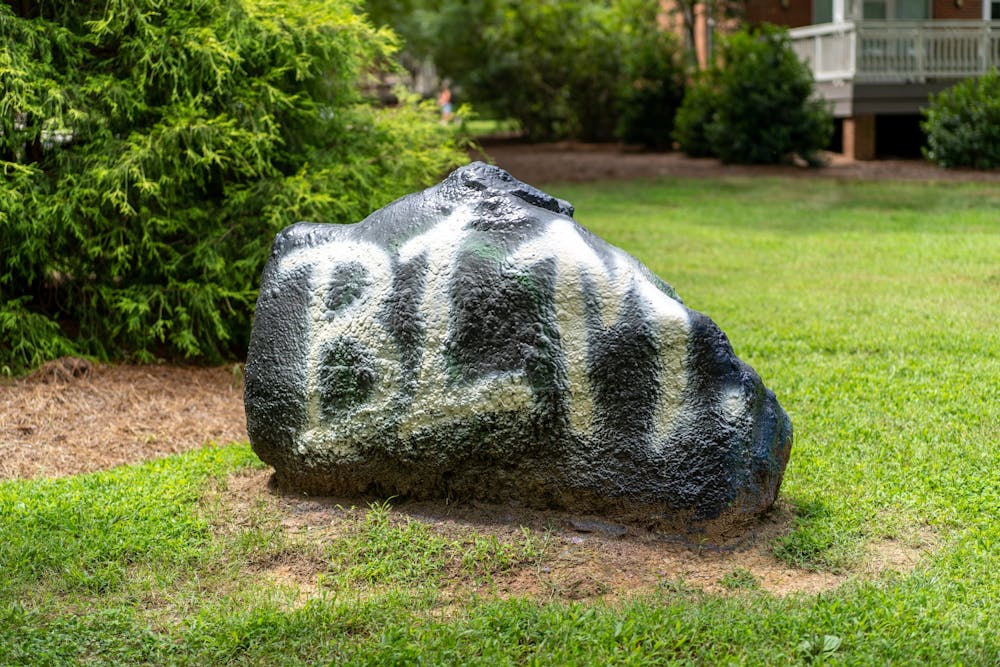In light of the racial tensions and disparities occurring in the United States, senior Emma McCabe, junior Anne Williams, and executive board members from the physics, biology, chemistry, exercise science and the engineering clubs started the STEM for Black Lives Matter club. The new club emerged on campus in July to promote diversity and advocate against racial disparities in the STEM communities. McCabe said the club’s main goal is to raise awareness to these issues.
“Our main goal is to figure out ways to create community and address racial, health and other types of disparities in the sciences. I wanted to do something even if I couldn’t make an astronomical change. I wanted to make one person feel more welcomed in the science community at Elon,” McCabe said.
McCabe and Williams — who are both white students— said they wanted to use their platform to promote diversity initiatives.
“Sitting alone with anger and upset is not going to do anything to help others, which is kind of the same thing as white tears [being] violence,” Williams said. “Actually trying to change something and make the world better for other people is what empowered me to do this. I felt called so I did.”
Nyote Calixte, the club’s faculty advisor, did not respond to Elon News Network’s immediate requests for comment.
STEM for BLM holds biweekly meetings to discuss projects, events and conferences. On top of meeetings the group also hosts events like the Black Scientists Panel. The panel included Elon alumni, faculty and students who shared their experiences and answered questions about working in the science field.
The club highlighted Black achievement in STEM by creating a slideshow in the science buildings on campus of prominent Black scientists, which was one of the organizations’ most important projects, according to Williams.
Along with highlighting Black achievements in STEM, the club also featured a slideshow of statistics from the Journal of Progressive Policy and Practice, a part of the Center for African American Research and Policy involving Black women and STEM on their website and social media platform.
After highlighting different research statistics, club members included a “So what can I do to help make science welcoming for all identities?” slide, which included information on embracing different perspectives and examining implicit bias in the science field.
Club member Shalexzandra Dunkley is a junior biomedical engineering major who joined the club to help inform her peers. The club has also helped her reflect on being a STEM student of color at Elon.
“Being a black STEM student at a predominately white institution is difficult. Sometimes it feels as though others get resources or have previous resources that help along the way. It’s a learning process really to break out of my shell and reach out to others for help and guidance,” Dunkley said.
Even though the organization aims to educate and inform members of the Elon community, through these initiatives, club members themselves have learned a lot about intersectionality and diversity in the sciences.
“While we are trying to educate others, we are in the process of educating ourselves and hopefully becoming better more aware people. Working with people in STEM, I am really excited to be talking with people who come from such different backgrounds and perspectives,” McCabe said.
Due to COVID-19, the club has had to adapt to follow physical distancing protocols.
“We started in the midst of COVID while everything was going on. We mostly have been able to talk through GroupMe, social media platforms, Webex and Zoom,” McCabe said.
The club hopes that in the future, they will continue to expand and raise awareness on campus.
“We want to start laying the groundwork to make a community in McMichael that is open-minded and welcoming. We are still in the works but I’m hoping we can keep doing bigger and better things,” Williams said.


